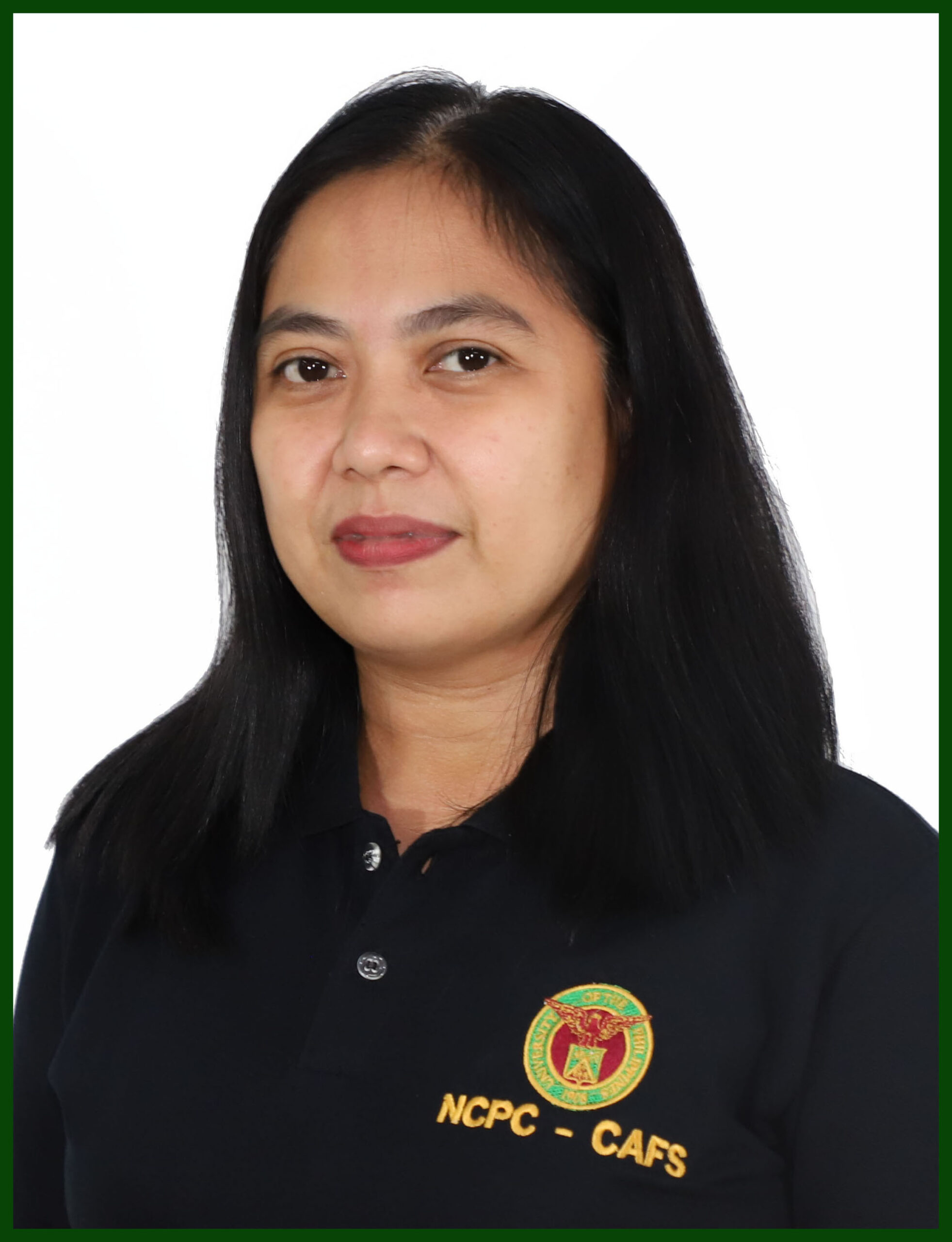
Marita S. Pinili
University Researcher IV
Education
BS Agriculture major in Plant Pathology, UPLB
MS Plant Pathology minor in Entomology, UPLB
Specialization/Research Interests
Diagnosis of plant parasitic nematodes (PPN), biopesticides through nanotechnology
Biography
Dr. Marita Sanfuego Pinili is currently serving as Senior Plant Virologist and Phytonematologist of the National Crop Protection Center, College of Agriculture and Food Science, University of the Philippines Los Baños (UPLB). She earned her Bachelor of Science in Agriculture major in Plant Pathology and Masters of Science in Plant Pathology minor in Entomology at UPLB in 2000 and 2008, respectively. She pursued and earned her Doctors of Philosophy in International Agricultural Development major in Plant Virology in the Laboratory of Tropical Plant Protection, Tokyo University of Agriculture (NODAI) in Tokyo, Japan in 2013. Her major research field is on molecular identification and characterization of Musa viruses (including banana, abaca, and ornamental Musa) in Asia and their disease management strategy. During her graduate studies, she worked on major viruses of banana and abaca including the Banana bunchy top virus (BBTV), Banana bract mosaic virus (BBrMV), Abaca mosaic virus (AbMV), Cucumber mosaic virus (CMV), and Badnavirus not only on Philippine banana and abaca, but also some banana genotypes from Indonesia and Japan, wherein she was able to report for the first time the molecular identification and characterization of BBTV in Bali, Indonesia. Her works on Musa viruses have been published in local and international refereed journals. Her research does not limit to Musa viruses. She continues to work on important plant viruses of other crops such as Begomovirus of cucurbits and solanaceous crops, Potexvirus of dragon fruit and other Cactaceae, Badnavirus of Japanese aucuba, and Potyvirus of papaya and Tenuivirus of corn. Her expertise also deals with diagnosis of plant parasitic nematodes (PPN) of banana and other crops, including morphological, morphometrics and molecular identification of PPN, and screening for resistance. Also, she is actively working on major diseases of corn and looking for potential biopesticides through nanotechnology as safe disease management strategy.
Her experience on regulatory and policy-making perhaps limited to the extent that she exposed mainly as a full-time researcher, but her involvement to the ASEAN Plant Health Cooperation Network of ASEANET (APHCN-ASEANET) Project on “Taxonomic capacity building to support market access for agricultural trade in the ASEAN region” as the Regional Training Coordinator and one of the Resource persons for the Training Workshops on the Diagnostics of Plant Viruses and Plant Parasitic Nematodes gained exposure on plant quarantine and plant biosecurity issues and regulations related to import/export crops infected with viruses and nematodes in South-East Asia. These training workshops were participated in by plant quarantine and plant biosecurity officers from 10 S-E Asian countries. Her continues collaboration with APHCN-ASEANET projects until now further enhances her knowledge in regulatory and eventually on policy-making related to plant quarantine and plant biosecurity in S-E Asia.
